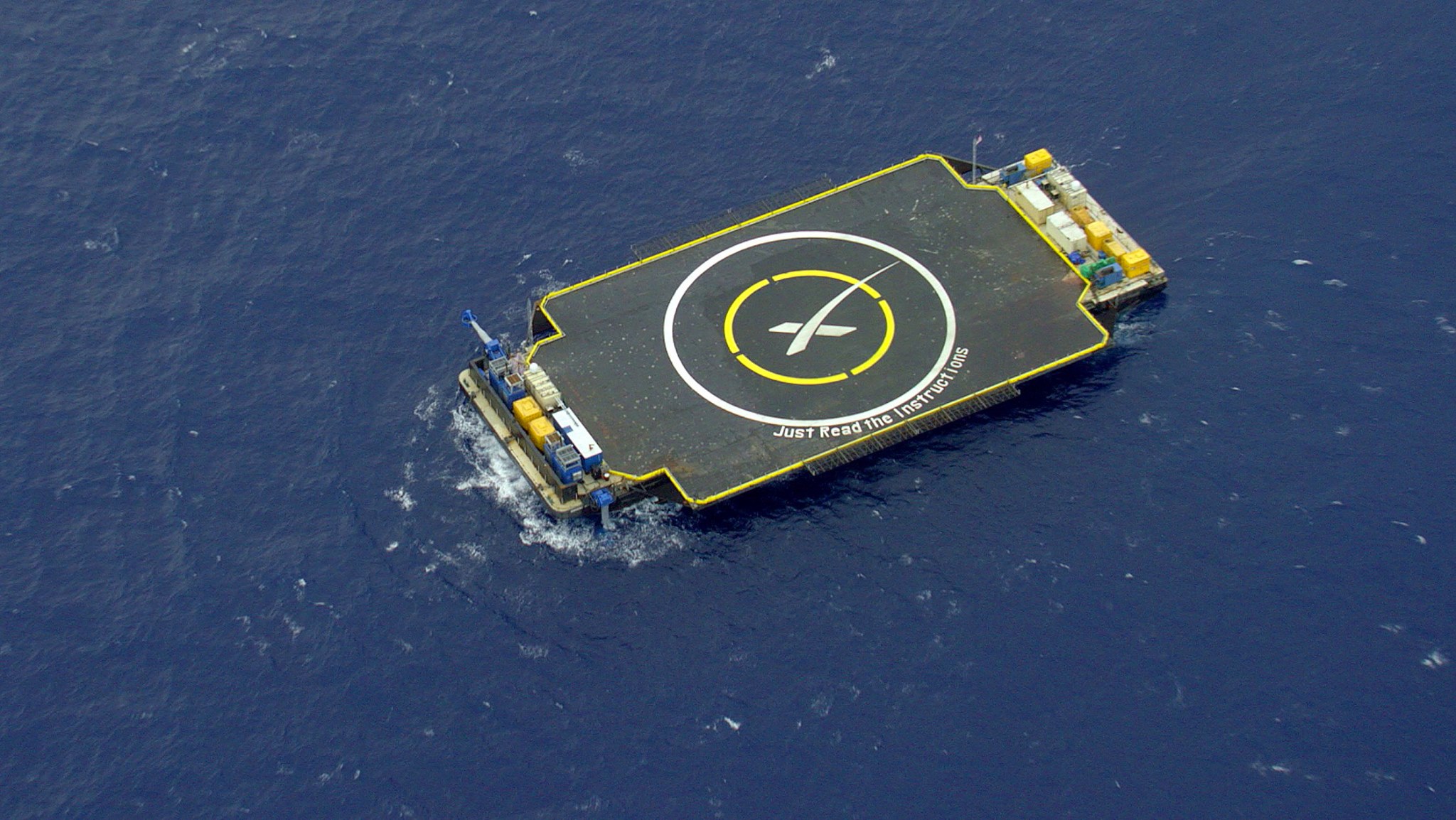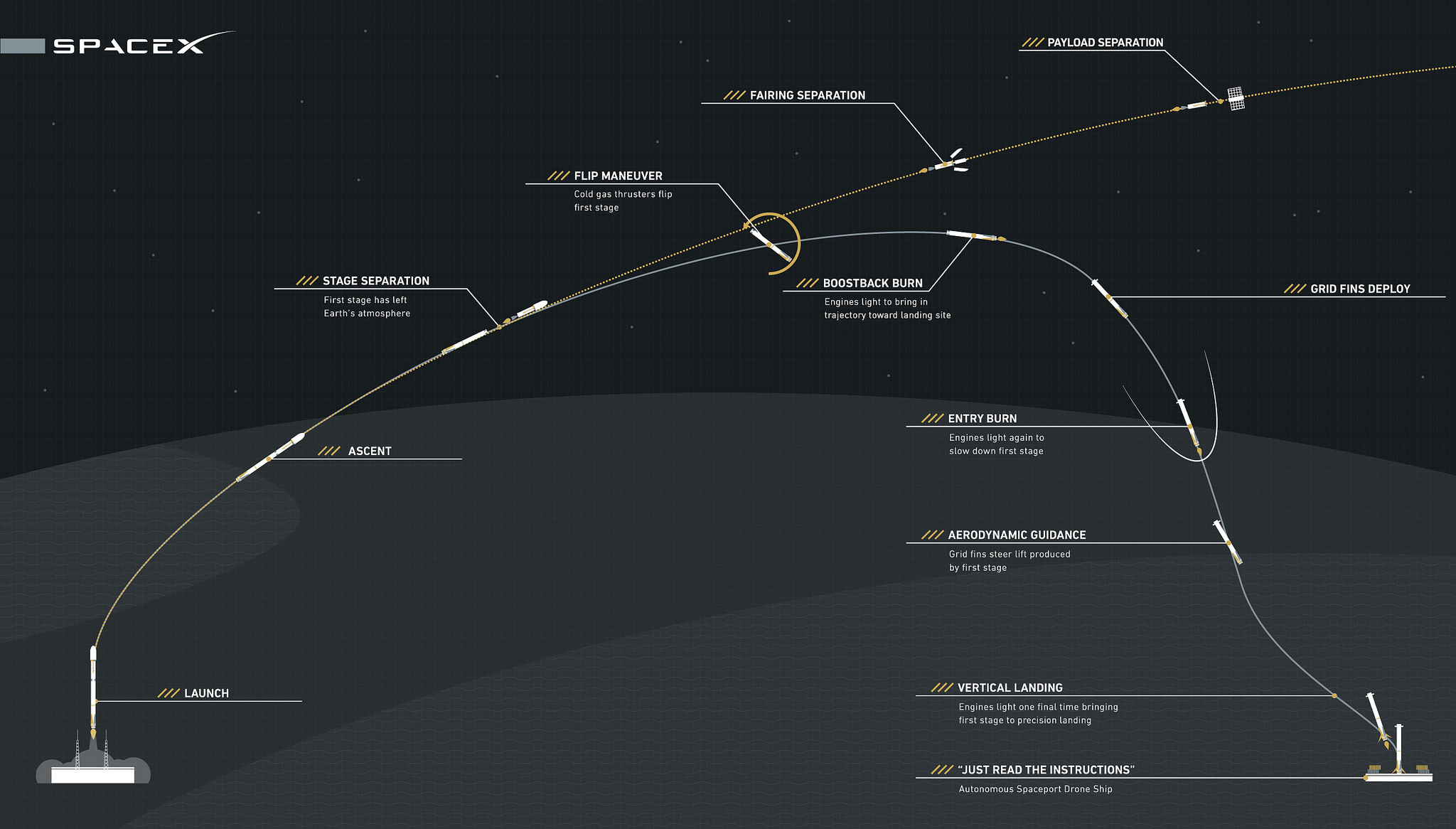SpaceX Bullish on Odds of Rocket-Landing Success Sunday

SpaceX is cautiously optimistic that it will be able to make spaceflight history yet again Sunday (Jan. 17).
The private spaceflight company aims to land the first stage of its Falcon 9 rocket on an uncrewed "drone ship" in the Pacific Ocean Sunday, during the launch of the Jason-3 ocean-monitoring satellite from Vandenberg Air Force Base in central California.
SpaceX succeeded in bringing a Falcon 9 first stage back on terra firma Dec. 21 at Florida's Cape Canaveral Air Force Station — the first time this had ever been done during an orbital launch. Company representatives like their chances of making the first-ever landing on a ship at sea Sunday, even though waves in the touchdown zone are expected to be 10 feet to 13 feet (3 to 4 meters) high. [SpaceX's Epic Falcon 9 Rocket Landing in Pictures]
"The sea state is good for surfing, and a little bit high for landing, but we don't anticipate that that's going to be a major problem," Hans Koenigsmann, SpaceX's vice president of mission assurance, said during a prelaunch press conference Friday (Jan. 15). "I'm pretty hopeful. We had a really good landing last time, so things are looking good at this point in time."
The rocket stage will be coming down at sea instead of on land for legal and logistical rather than technical reasons, Koenigsmann added.
"We do not have environmental approval [for a touchdown on land] at this point in time at this range," he said. "That's something that we will in do in the future; future missions [from Vandenberg] will see a land landing, hopefully."
SpaceX has tried drone-ship landings twice before, once in January 2015 and again in April of that year. Both attempts, which launched from Cape Canaveral, were near misses: the Falcon 9's first stage hit its target but came in too hard and toppled over on the ship's deck.
Breaking space news, the latest updates on rocket launches, skywatching events and more!
These attempts are part of SpaceX's effort to develop fully and rapidly reusable rockets, a big priority for the company and its billionaire founder and CEO, Elon Musk. Musk has said that reusable launch vehicles could cut the cost of spaceflight by a factor of 100 or more, potentially opening up the heavens to human exploration.
SpaceX has been studying and inspecting the Falcon 9 stage that landed on Dec. 21, and the early returns are encouraging in terms of its ability to take off again. The booster returned to Earth undamaged, and it performed well in a recent firing test, Musk said.
"Conducted hold-down firing of returned Falcon rocket. Data looks good overall, but engine 9 showed thrust fluctuations," Musk announced Friday via his Twitter account, @elonmusk. (The first stage of the two-stage Falcon 9 employs nine Merlin engines.)
While SpaceX aims to re-launch landed boosters in the future, the Falcon 9 first stage that made history on Dec. 21 will be kept on Earth as a museum piece, Musk has said.
Sunday's launch and rocket-landing attempt are scheduled to occur at 1:42 p.m. EST (1842 GMT). You can watch the action live here at Space.com, courtesy of NASA TV; coverage begins at 11 a.m. EST (1600 GMT).
The landing try will be a secondary objective Sunday. The main priority is lofting Jason-3, which is designed to measure sea-level variations around the globe extremely precisely. The probe's observations should help researchers better understand ocean currents and the ongoing effects of climate change, among other things, mission team members have said.
The Jason-3 mission is a joint effort involving NOAA, NASA, the French space agency CNES and the European meteorology-satellite organization EUMETSAT.
Follow Mike Wall on Twitter @michaeldwall and Google+. Follow us @Spacedotcom, Facebook or Google+. Originally published on Space.com.

Michael Wall is a Senior Space Writer with Space.com and joined the team in 2010. He primarily covers exoplanets, spaceflight and military space, but has been known to dabble in the space art beat. His book about the search for alien life, "Out There," was published on Nov. 13, 2018. Before becoming a science writer, Michael worked as a herpetologist and wildlife biologist. He has a Ph.D. in evolutionary biology from the University of Sydney, Australia, a bachelor's degree from the University of Arizona, and a graduate certificate in science writing from the University of California, Santa Cruz. To find out what his latest project is, you can follow Michael on Twitter.

